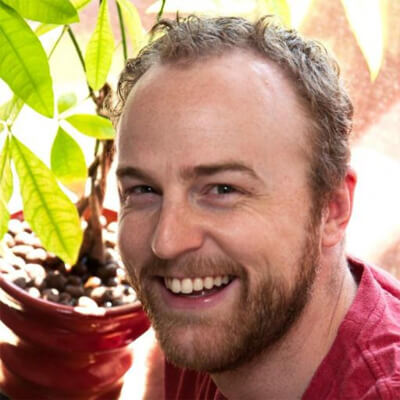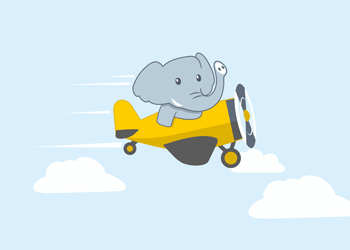Sitata.
 It’s not just fun to say, it’s also an invaluable travel planning and awareness platform.
It’s not just fun to say, it’s also an invaluable travel planning and awareness platform.
(Click here to read my review on how Sitata became my go-to travel safety app)
The technical guru behind the father/son application team is Adam St. John, who took some time out recently after a pre-Olympics fact-finding trip to Brazil to chat and answer some questions about the origins of the application and his own travel experiences.
When did you start traveling?
When I was younger, my father often had business meetings across South America and the Caribbean. I was fortunate in that he was able to take his family along with him and so I have some early memories of Barbados, Cuba, and Brazil, but at the time I certainly wasn’t old enough to appreciate it. It wasn’t until university when I had some funds of my own and left for a 6 week solo-trip around Europe. That trip left me in “wanderlust” and when I graduated in 2008 I took a six-month trip throughout New Zealand and South East Asia.
What’s your favorite place to travel?
There are too many to choose from and I don’t think I have a least favourite either. If you’re forcing me to pick, I would lean toward Thailand or Cambodia. Every destination has it’s own unique culture and charm. That’s the best part about travel!
What’s your what worst travel story? What happened, how did you deal with it?
I’ve been lucky so far in that I haven’t encountered any safety threats and no pick-pockets that I’m aware of, but I did get really sick in Vietnam. I had been travelling for three months and at that point, you just get really comfortable with things. So you tend to forget some of the basic rules to stay safe and healthy. At the time, I had planned to visit Phu Quoc island in the South of Vietnam to relax on the beach and recharge the batteries before moving north. The problem was I arrived in this small port town late at night after a full day of travelling without much to eat. It was a struggle to find a place to sleep, let alone something to eat. So after finding shelter for the night, I hit the streets starving, but nothing was open. The only thing I could find was a street vendor selling some sort of custardy treat that had clearly been sitting out all day, if not multiple days. I ate two. That was a huge mistake.
I made it to Phu Quoc island, but then it hit me and it hit me hard. I thought I was going to die. I couldn’t hold anything in and became severely dehydrated. It was really bad. Eventually, I was able to get some medication, but it was four days of hell and I never stepped foot on the beach!
What’s your number one piece of travel advice?
Don’t eat custard on the side of the road in Vietnam! Seriously though, I think the best piece of travel advice I can give is to follow basic safety advice and to try to have patience and tolerance for the place you’re visiting. Too many times I have seen foreigners expect to be understood in English and demand a level of comfort that just might not be possible. It’s best to visit with an open mind and an open heart. You have to realize that not everyone is going to understand you and get your dinner order exactly right. Try to be tolerant and understanding. Take some time to learn the culture and history of the place you’re visiting. That’s part of the experience in travel and the best advice I can give.
If you’re planning a trip or in the early stages of selecting a destination for your next vacation, include Sitata’s travel planning tools into your research and stack the deck in your favor before you even purchase those tickets. If you’re already booked, be sure to download the app to stay on top of any developing situation in your bucket list location!


